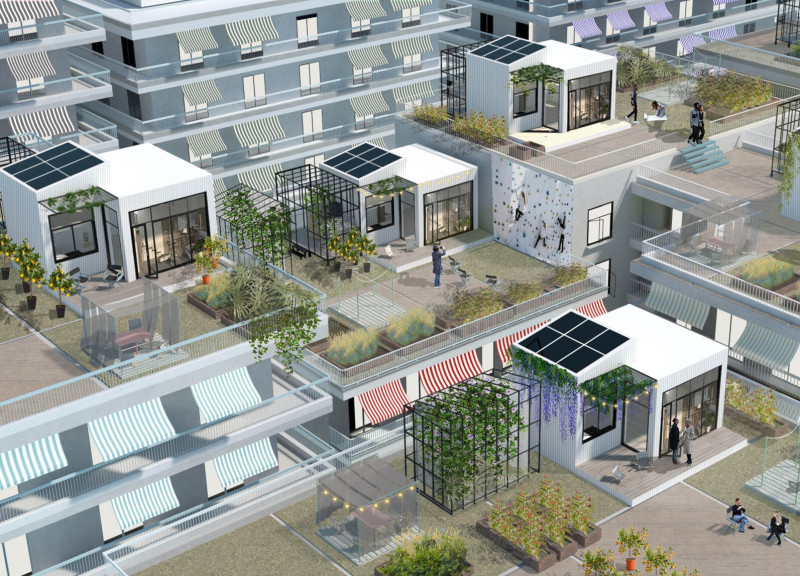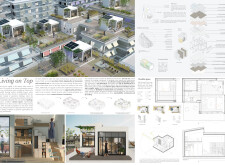5 key facts about this project
The design initiative in Athens, Greece, explores the potential of rooftop spaces by converting them into micro-homes. This approach addresses the city's significant housing challenges, marked by a shortage of affordable options amid high population density. The overall concept focuses on sustainability and building community, creating living spaces that merge comfort with practicality in a vibrant urban setting.
Flexible Living Spaces
- Movable wall panels are a key feature in the micro-homes, allowing residents to adjust their living areas according to personal needs. This adaptability maximizes the use of limited space while promoting individuality. The open layout encourages interaction among residents and integrates outdoor areas designed for communal activities.
Energy Efficiency
- These micro-homes aim to function independently from traditional energy sources. Solar energy is captured through carefully positioned openings and solar panels, providing much of the required power. Additionally, biogas technology converts organic waste into energy for cooking and heating, reducing reliance on external utilities and supporting a self-sufficient lifestyle.
Resource Conservation
- The design includes rainwater collection systems, which allow homeowners to manage water resources effectively. Rainwater is filtered and stored for various uses, enhancing sustainability. This approach not only benefits the residents but also minimizes the ecological footprint of the living spaces.
Thermal Efficiency
- Insulation plays a critical role in maintaining comfortable temperatures within the micro-homes. The combination of polyiso insulation and high-density cellulose ensures effective temperature control throughout the year. Clear zoning helps define different functional areas, while the inclusion of a mezzanine optimizes vertical space, adding utility to small living areas.
Shared outdoor spaces further encourage neighborly interactions, creating a cohesive community atmosphere in an otherwise crowded urban environment. This thoughtful approach addresses both housing shortages and the need for social connection.




















































